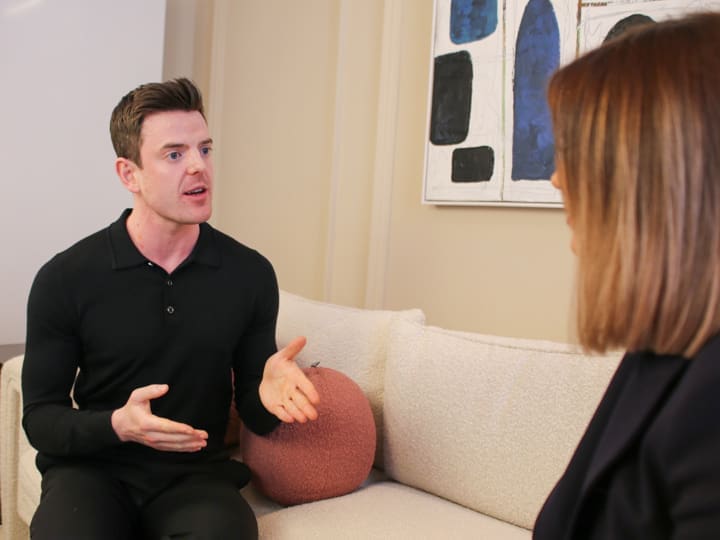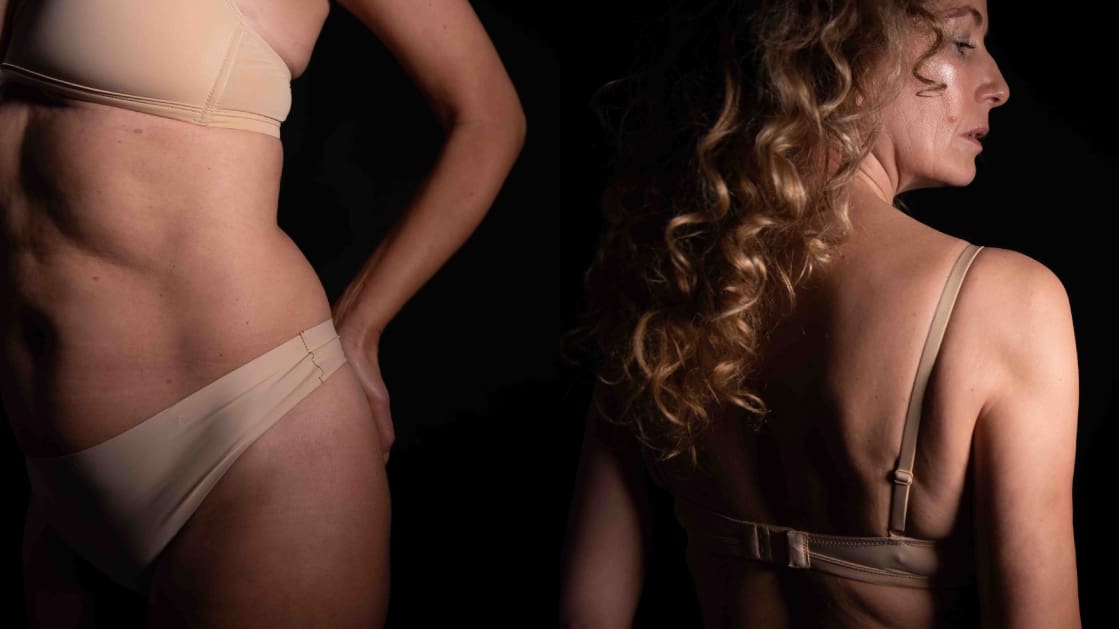McKeown Medical
167 Bath Street, Glasgow, G2 4SQ
Date posted — 24.04.25

Being diagnosed with fibroids can feel overwhelming. You may have noticed changes in your body, such as unusual bleeding, bloating, or pelvic pain, and suddenly you’re facing medical terms and treatment options you don’t fully understand.
At McKeown Medical, we believe in helping you make sense of it all with clear, expert-led information and compassionate care. In this article, we’ll answer some of the most frequently asked questions about fibroids to help you feel more informed and confident about your next steps.
Fibroids (also called uterine fibroids or leiomyomas) are non-cancerous growths that develop in or around the uterus. They vary in size, from as small as a seed to as large as a melon, and can appear as a single growth or in clusters.
Fibroids are incredibly common. It’s estimated that around 2 in 3 women will develop at least one fibroid during their lifetime. They typically affect people in their 30s and 40s, but can occur at any age.
Many fibroids don’t cause any symptoms and are only discovered during routine scans or examinations. However, others can lead to significant discomfort and disruption in daily life.
The symptoms of fibroids depend on their size, number, and location within the uterus. Some of the most common include:
Not everyone with fibroids experiences symptoms, but if you’re noticing any of the above, it’s worth seeking medical advice. At McKeown Medical, our expert team can help you get the answers you need through an initial consultation.
Fibroids don’t cause weight gain directly, but they can lead to abdominal bloating or a noticeable bulge in the lower stomach. This is especially true when fibroids are large or numerous. For some, this change can mimic the appearance of weight gain even if body fat hasn’t increased.
No, fibroids are not cancerous. They are benign tumours, meaning they do not spread to other parts of the body. In extremely rare cases, a cancerous growth called a leiomyosarcoma can develop in the uterus, but this is not thought to arise from a fibroid.
Importantly, having fibroids does not increase your risk of uterine cancer.
If you experience symptoms such as soaking through sanitary products frequently, feeling unusually fatigued, or suffering from shortness of breath during your period, it may be time to consult a healthcare professional. Early intervention can help prevent complications and improve your quality of life.
Still, it’s vital to monitor any changes in your symptoms and undergo regular checkups—especially if you’re postmenopausal or experiencing unusual bleeding.
The exact cause of fibroids isn’t fully understood, but several factors are known to play a role:
Fibroids can grow slowly or rapidly, or they may remain the same size for years.
At McKeown Medical, we offer a range of evidence-based treatments tailored to your symptoms, lifestyle, and personal preferences. These include:
Medication
Minimally invasive surgery
Hysterectomy
We understand that every woman’s situation is unique, which is why we take a personalised approach to treatment planning.
Fibroids are common, but they don’t have to be confusing or debilitating. With the right care, they can be managed or removed effectively, giving you back control over your health and quality of life.
At McKeown Medical, our gynaecology service is led by Dr Iain Martin, a highly experienced consultant specialising in the diagnosis and treatment of fibroids. Whether you’re newly diagnosed or considering your treatment options, we’re here to help you find the path that’s right for you.
Book a consultation to speak with one of our experts and explore your treatment options today.
Best in the business without a shadow of a doubt. Over 10 years I have been a client, never once had an issue with my treatments. High standards/practice speaks volumes.
Charlene DouganMay 2024

Jowls are one of the most common complaints that our patients come with - and so many of you want to avoid surgery, for a variety of very personal reasons.
So just what can we do for jowls without surgery? This!!!
Thank you so much to this patient for allowing us to share the results of her volumetric facelift. The volumetric facelift involves restoring volume to areas of the face that have lost volume as part of the ageing process - typically the cheeks, chin and jawline - which can really help to rejuvenate the face, especially reducing the appearance of jowls.
The patient is over the moon with this result. What do you think?

Varicose veins and thread veins might sound similar, but they’re actually quite different. Here`s Dr Alex, our vascular surgeon explaining the difference.
Varicose veins are larger, swollen veins that sit just beneath the surface of the skin. They often appear on the legs or feet and can cause discomfort, pain or a heavy, aching sensation.
Varicose veins and thread veins might sound similar, but they’re actually quite different.
Varicose veins are larger, swollen veins that sit just beneath the surface of the skin. They often appear on the legs or feet and can cause discomfort, pain or a heavy, aching sensation.
Thread veins, sometimes called spider veins, are much smaller. They appear as red, blue or purple web-like lines on the surface of the skin and are usually painless. You’ll often see them on the legs or face.
We can treat both types of veins. If you’re not sure what’s right for you, get in touch and we’ll be happy to talk it through.
Learn more about varicose veins and how we can help at the link in our profile.
Varicose veins and thread veins might sound similar, but they’re actually quite different. Here`s Dr Alex, our vascular surgeon explaining the difference.
Varicose veins are larger, swollen veins that sit just beneath the surface of the skin. They often appear on the legs or feet and can cause discomfort, pain or a heavy, aching sensation.
Thread veins, sometimes called spider veins, are much smaller. They appear as red, blue or purple web-like lines on the surface of the skin and are usually painless. You’ll often see them on the legs or face.
We can treat both types of veins. If you’re not sure what’s right for you, get in touch and we’ll be happy to talk it through.

Heavy periods can be more than just an inconvenience. They can cause anaemia, fatigue and have a real impact on your quality of life.
In this video, Dr Iain Martin @driainmartin martin explains the different treatment options available, from iron supplements and hormone therapy to ultrasound scans to check for fibroids or polyps.
If no clear cause is found and you`re not planning any more pregnancies, we offer treatment with the NovaSure® endometrial ablation device. It is a quick, minimally invasive procedure that can significantly reduce or stop bleeding altogether.
If heavy bleeding is something you’ve been putting up with, it might be time to explore your options.
Find out more about your treatment options at the link in our profile.

Another new exciting development in aesthetic medicine! The blockbuster drug Botox now has a license for treating the ageing neck.
The treatment works by relaxing the muscle in the neck, which improves the jawline and neck. Variations of this treatment have been around for a long time on an ‘off label’ basis. I’ve always been a little underwhelmed by this, but in the trials for approval they used higher doses than we typically used in the past and managed to achieve more consistent results.
The neck is an area that has a lot of anatomical variation, so the best treatment for each individual will vary. This is probably best for people with skinnier necks. If you have a bit of excess fatty tissue, then a treatment like CoolSculpting might be best or if you have loose skin then some Halo laser might be the option.
As always the way to find the best option for your concerns is a consultation with an experienced doctor!

This lovely patient is just three weeks on from her deep plane facelift, neck lift and upper blepharoplasty performed by @bramhallplasticsurgery and she’s been kind enough to share her own selfies to show how things are settling.
She also had full laser resurfacing with Dr Darren three months ago to improve deeper skin creases and texture, helping to enhance the overall result.
It’s still early days in her recovery, but you can already see the impact of combining surgical lifting with skin rejuvenation: a beautifully refreshed look and she`s absolutely delighted!
What do you think?
Find out more about the full facelift at the link in our profile.

Relfydess is the newest toxin on the market and we have been working hard in the clinic to test the claims of the manufacturer. Is it really as good as they claim?
This patient kindly allowed us to test the difference with her: she had Relfydess on the left side of her face and her usual Botox on the right, to compare how the two treatments performed. These photos were taken three weeks after treatment.
The Relfydess kicked in a day or two faster. However, what is really interesting is that on the side we treated with Reflydess she got a good result that didn`t need a top-up, whilst the other side did need a top-up, which you can see in these photos.
I will keep posting more updates as we find them about this new product!

I’ve been treating patients with Relfydess for the past few weeks now, and I was really curious to know how they were getting on. So, we reached out to the first 97 people who had the treatment and asked them how it felt, how quickly it worked, and whether they’d do it again.
In this video, I’m sharing what they told me – and a bit of my own perspective on how it’s shaping up compared to the other wrinkle treatments we have available. It’s still early days, but the feedback so far has been really interesting!

As we approach the summer holidays and get into the middle of wedding season, filler season is well under way! Thank you to this lovely patient for allowing us to share her results following a volumetric facelift, all performed with injections of dermal filler.
Her main concern was the development of jowls and the way it was starting to affect the shape of her lower face. By carefully restoring volume in the right areas, we were able to subtly lift and contour creating a more defined jawline while keeping everything natural and in harmony with the rest of her features.
This is a few weeks post-treatment and she`s absolutely over the moon. What do you think?
Find out more about our volumetric facelift treatment at the link in our profile.

Thank you to our lovely patient for allowing us to share these photos with you.
She came to see us with prominent varicose veins that had been bothering her for years. Just 8 weeks after treatment with VenaSeal™, you can already see a noticeable difference and the results will continue to improve as the treated veins fade further over the months ahead.
VenaSeal™ is a walk-in, walk-out treatment that uses medical adhesive to close the affected veins. No surgery, no compression stockings, and no downtime which made it the ideal option for this patient.
We’re so pleased with how things are progressing already. More to come as her results continue to develop.
Find out more about VenaSeal™ and our other treatment options for varicose veins at the link in our profile.
